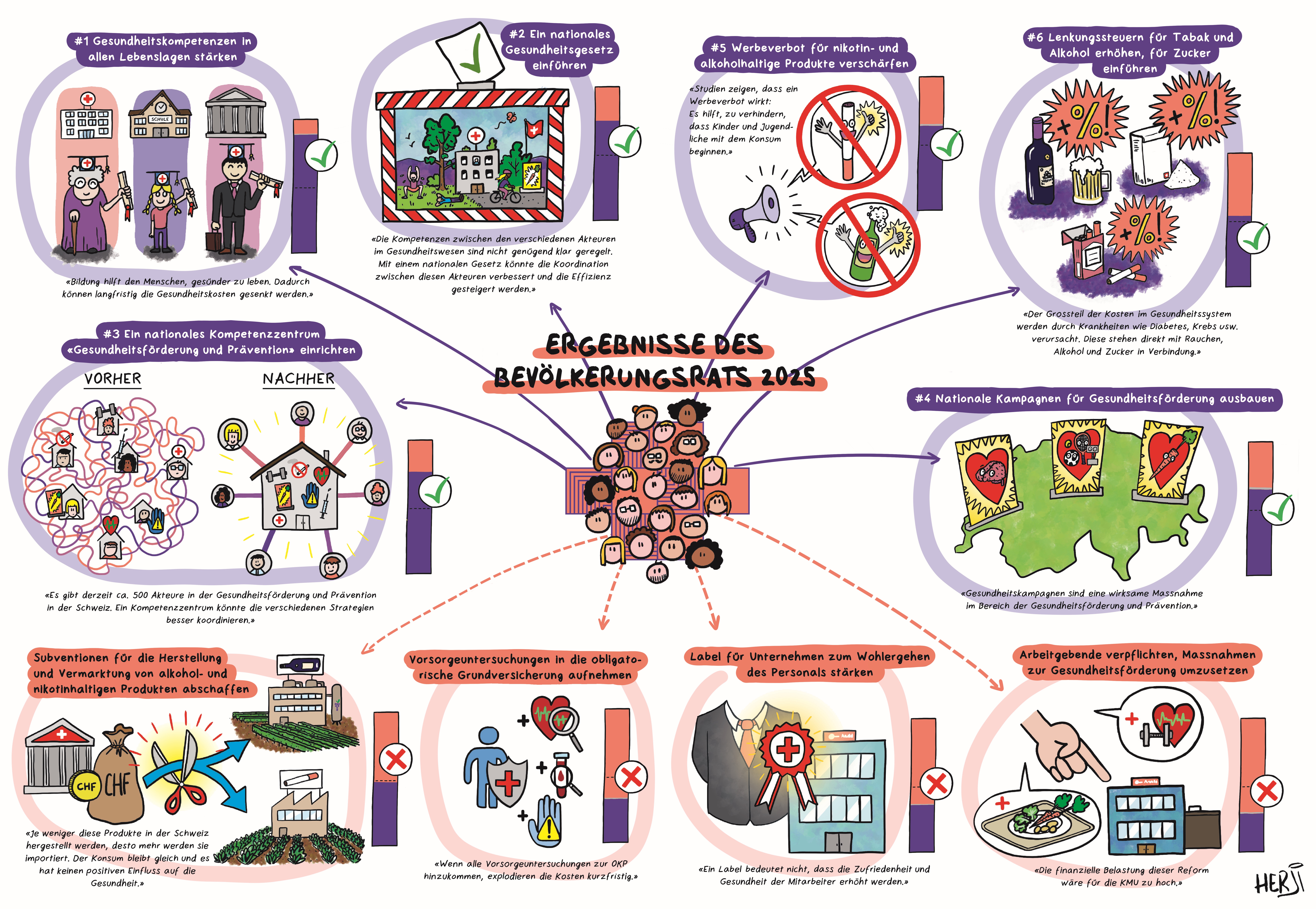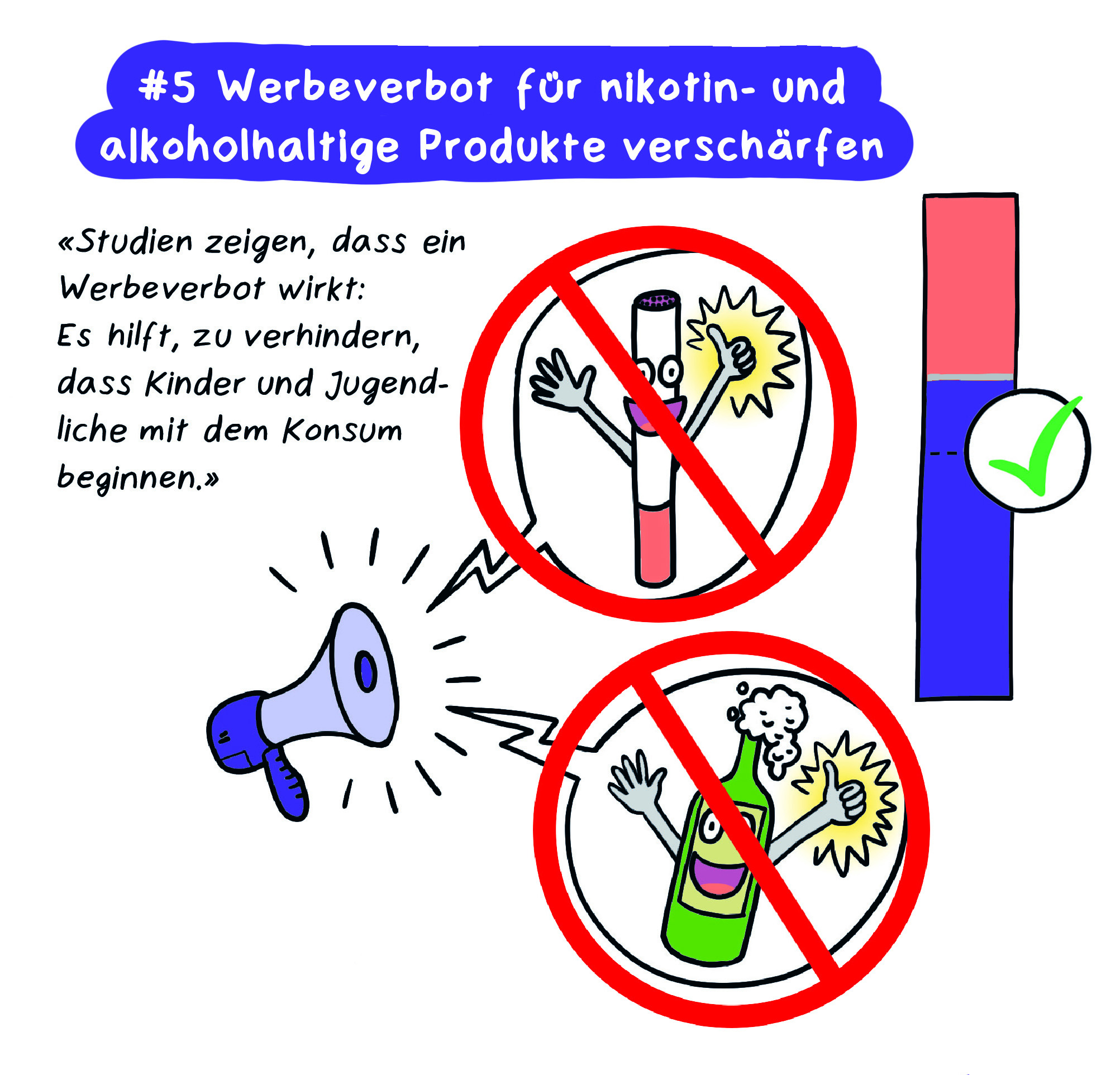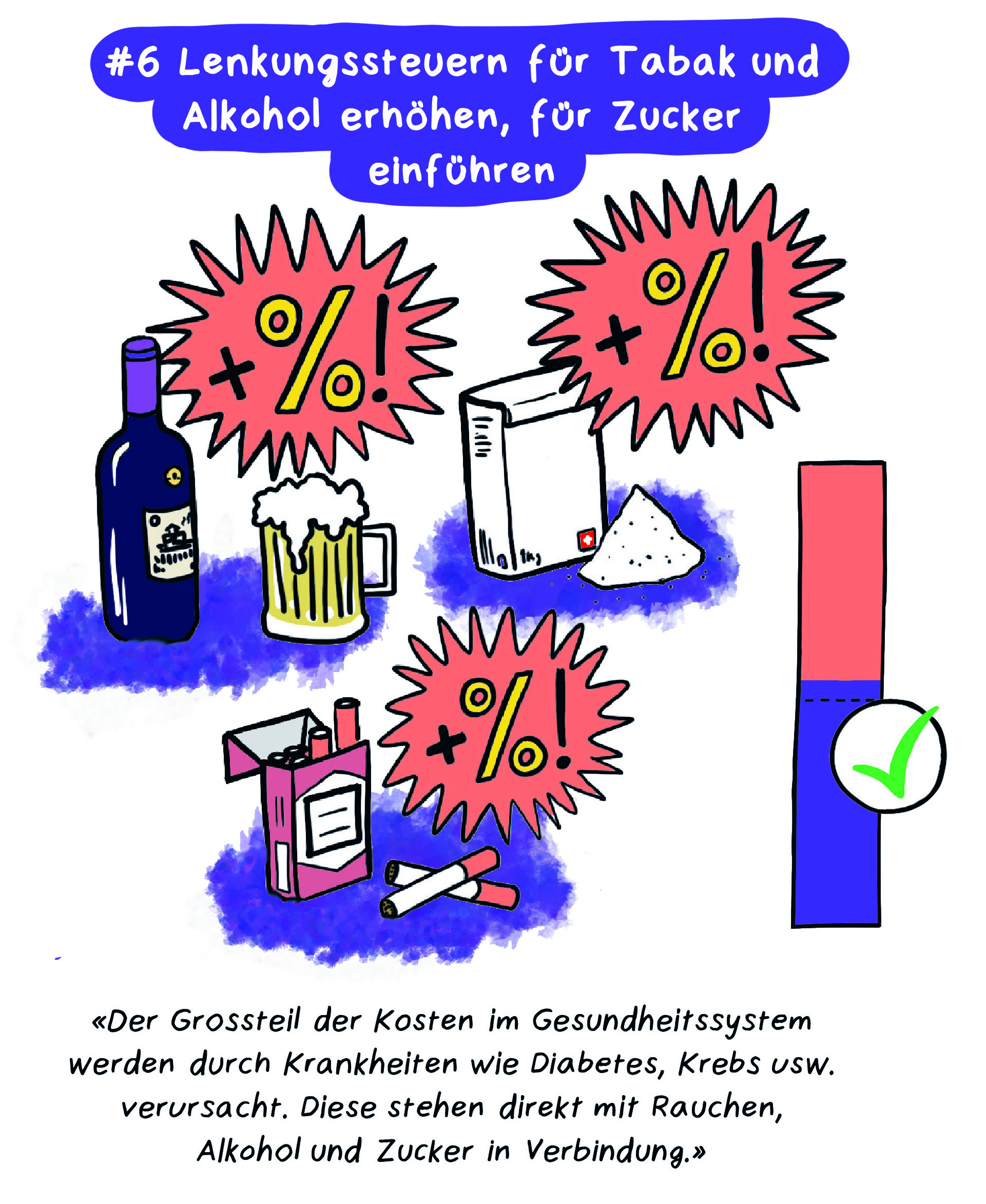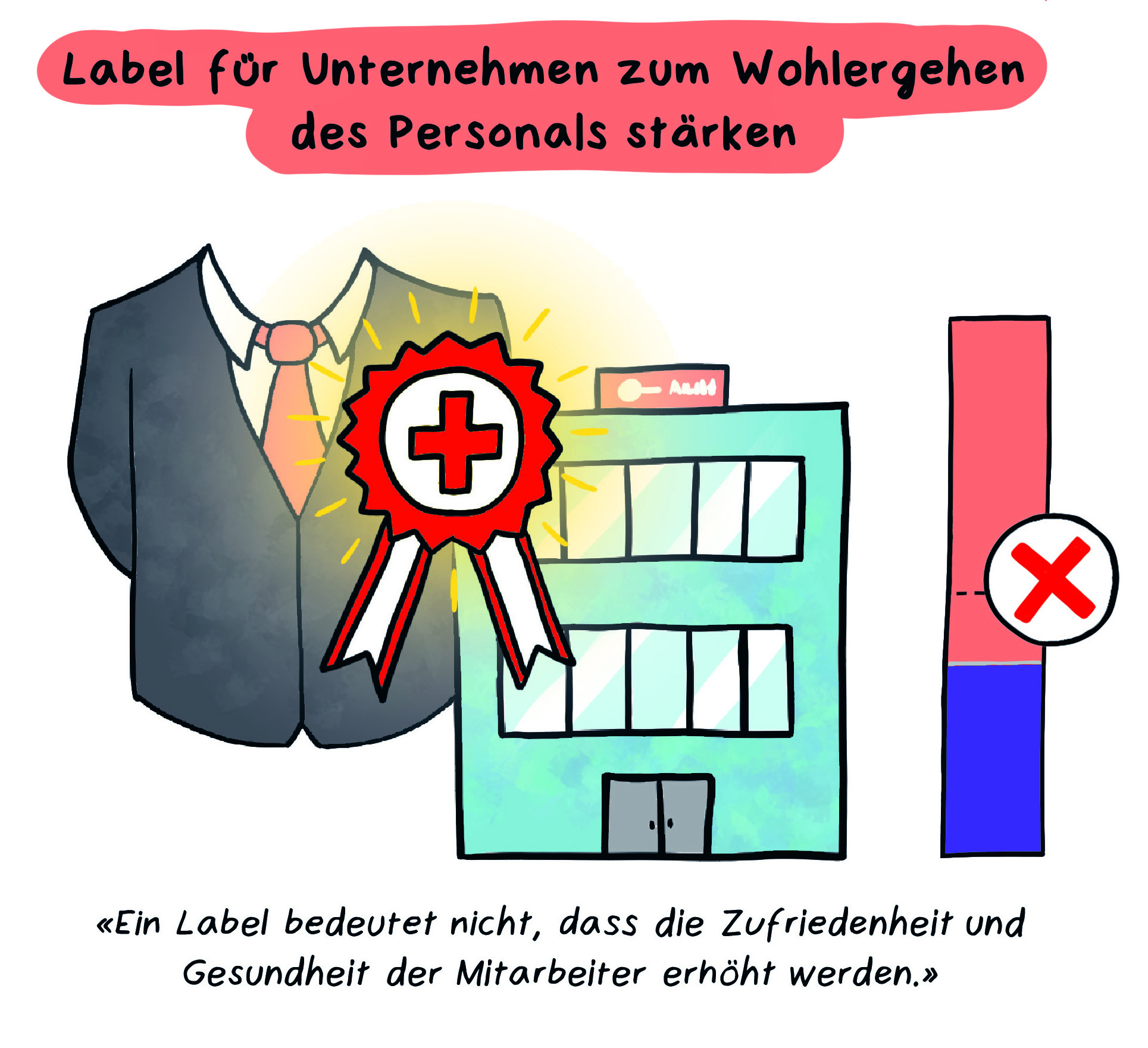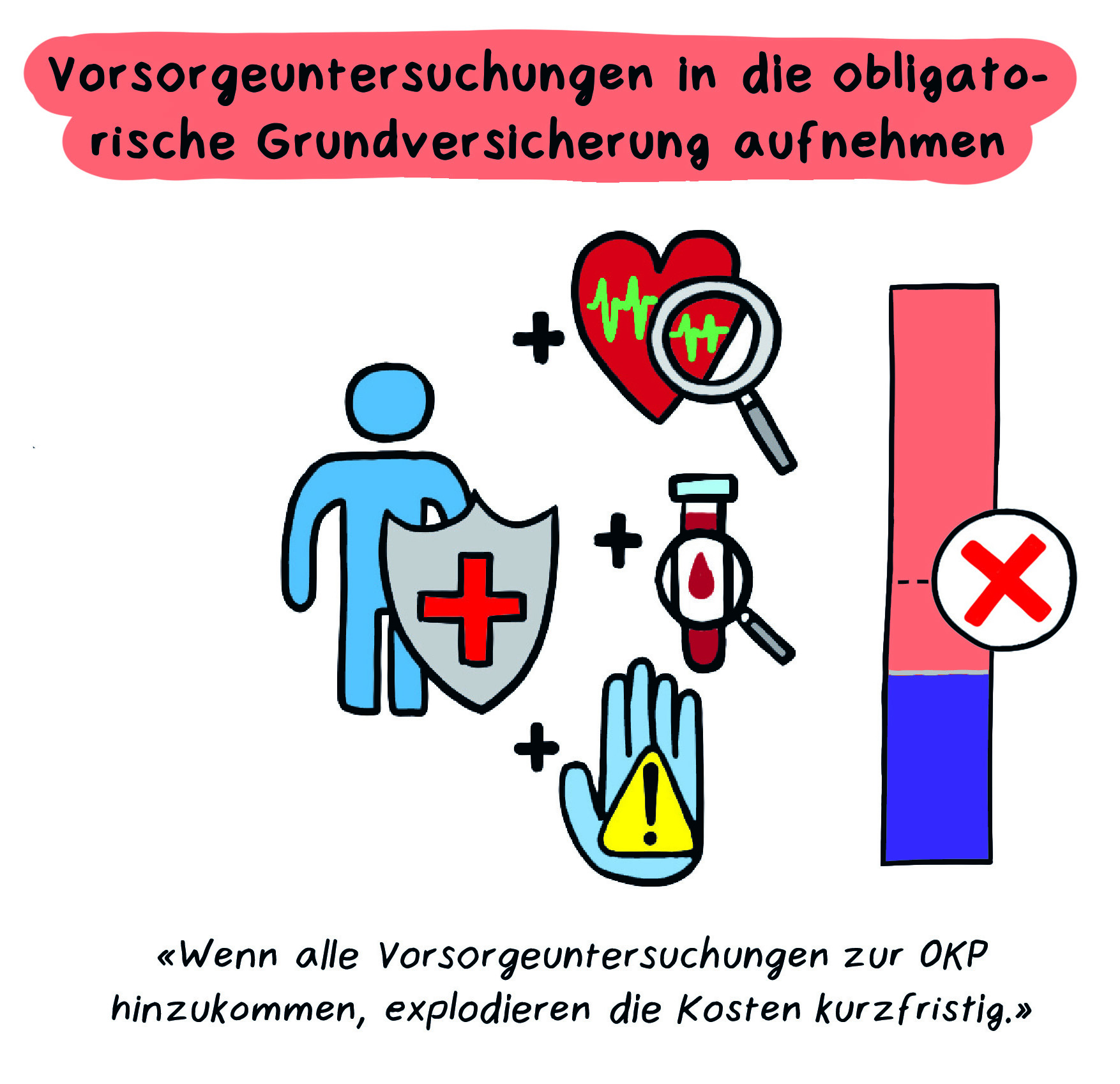The Citizens’ Assembly’s reform proposals
Adopted reform proposals
Of the 10 reform proposals, 6 were adopted in the final vote. They were then prioritised by the participants.
Reform proposal #1: Strengthen health literacy in all areas of life (87.5% yes votes)
Design: In order to be able to behave in a healthy way, the population must have sufficient health literacy. To this end, health literacy should be taught and strengthened in all phases of life. To implement this, cross-sectoral cooperation between the health, education and social sectors is needed.
Argument in favour: Education promotes healthy lifestyles and reduces healthcare costs in the long term.
Reform proposal #2: Introduce a national health law (75% yes votes)
Design: The Swiss healthcare system is primarily focused on the treatment of diseases. At the national level, the Health Insurance Act (KVG) is the most important legal basis. A legal basis for a comprehensive healthcare system that includes both medical care and the promotion and preservation of health is currently lacking. The Swiss healthcare system is strongly federalist in character, with tasks and responsibilities distributed among the Confederation, cantons and municipalities.
Argument in favour: Uniform regulations improve health promotion and prevention.
Reform proposal #3: Establish a national competence centre for health promotion and prevention (76.2% yes votes)
Design: In Switzerland, many different actors are responsible for health promotion and prevention. The cantons also play an important role in this. This can lead to activities not always being well coordinated. In order to strengthen and better coordinate health promotion and prevention in Switzerland, a national competence centre should be established. This centre should build on existing structures, or be created at the interface of existing structures (e.g. at the interface between Health Promotion Switzerland and the Federal Office of Public Health).
Argument in favour: Simple integration of the centre into existing structures.
Reform proposal #4: Expand national campaigns for health promotion (63.8% yes votes)
Design: National campaigns for health promotion can help to reach the population on a large scale, inform them and strengthen their health literacy. To strengthen such campaigns in the field of health promotion, a multidisciplinary competence centre for campaigns should be established within the Federal Office of Public Health, consisting of experts from the fields of health, communication and economics.
Argument in favour: Knowledge enables people to take responsibility for their health.
Reform proposal #5: Tighten the advertising ban on products containing nicotine and alcohol (61.3% yes votes)
Design: A ban on advertising products containing nicotine and alcohol aims to reduce the consumption of these harmful substances and to protect children and young people in particular from starting to use them at an early age. For products containing alcohol, there are already restrictions on advertising, for example in relation to young people. The adoption of the popular initiative “Children and young people without tobacco advertising” in 2022 also shows the clear will of the population to restrict advertising for such products.
Argument in favour: An advertising ban protects children and young people from harmful substances.
Reform proposal #6: Increase steering taxes on tobacco and alcohol, introduce them for sugar (52.5% yes votes)
Design: A steering tax on tobacco, alcohol and sugar is intended to help reduce the consumption of these products. Higher prices make purchasing less attractive, which can help in the long term to reduce health problems and consequential costs for society.
In Switzerland, such steering taxes already exist on tobacco and alcohol, but not yet on sugar-containing products. The proposal is to increase the existing taxes on tobacco and alcohol and to introduce a tax on sugar.
Argument in favour: Higher prices reduce the consumption of these products and strengthen prevention.
Rejected reform proposals
Four of the ten reform proposals were rejected in the final vote.
Reform proposal: Abolish subsidies for the production and marketing of products containing alcohol and nicotine (51.3% no votes)
Design: Subsidies for the production and marketing of harmful products such as tobacco and alcohol contradict the goals of health protection. This proposal therefore aims to stop subsidising the production and marketing of harmful products.
Argument against: The fewer of these products are produced in Switzerland, the more they will be imported. Consumption remains the same and there is no positive impact on health.
Reform proposal: Strengthen label for companies on staff well-being (65.5% no votes)
Design: The proposal aims to further develop and strengthen the "Friendly Workspace" label in cooperation with employers’ associations and trade unions. The label should be applicable in all companies – regardless of size and professional category. In addition, companies should be made more aware of the label and motivated to participate.
Argument against: A label does not necessarily increase employee satisfaction and health.
Reform proposal: Include preventive examinations, blood tests and mental health check-ups in the compulsory basic insurance (OKP) (65.0% no votes)
Design: The basic insurance (OKP) covers specific preventive measures laid down in the Health Care Benefits Ordinance (KLV). These include certain vaccinations, preventive examinations for risk groups and other measures for the early detection or prevention of diseases. These measures are reimbursed uniformly throughout Switzerland. In addition, each canton decides whether or not to reimburse further preventive measures. This leads to cantonal differences in these additional preventive measures.
For this reason, additional preventive measures should be included in the basic insurance (OKP).
Argument against: If all preventive examinations are added to the OKP, costs will skyrocket in the short term.
Reform proposal: Oblige employers to implement health promotion measures (70.0% no votes)
Design: The proposal envisages that employers would be obliged, together with employees/trade unions, to introduce additional health promotion measures in their companies (in addition to the obligations under occupational safety legislation and the Labour Act). For this purpose, a national catalogue of measures should be developed, based on occupational health management (BGM).
Argument against: The financial burden of this reform would be too high for SMEs.
Die ausführlichen Ergebnisse zu den Reformvorschlägen (Abstimmungsresultate, Priorisierungswerte, Argumente dafür und dagegen) gibt es im Abschlussbericht des Bevölkerungsrats (PDF, 6 MB).
